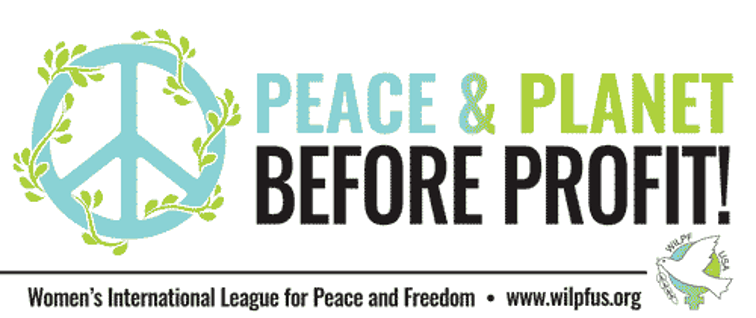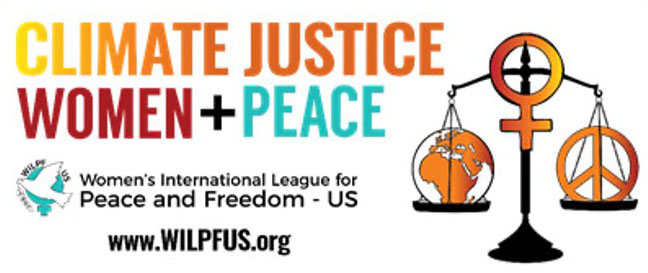- Works to normalize relations between the US government and the countries comprising the Bolivarian Alliance
- Conducts education on the advancement of women's rights under the Cuban Revolution
Contact
The committee is meeting regularly by conference call. For more information on the committee and how to join, please contact either of the co-chairs:
Co-Chair Cindy Domingo: cindydomingo [AT] gmail.com
Co-Chair Leni Villagomez Reeves: lenivreeves [AT] gmail.com
Projects
The most immediate project of the committee is the US-Cuba-Canada Collaboration to fight COVID-19, in connection with the Saving Lives in the Face of COVID-19 project. Find out more here.
Saving Lives in the Face of COVID-19
Cuba has had a long history of actively implementing an internationalist perspective on healthcare by sending healthcare teams internationally, providing medications and training doctors from all over the world. In this global pandemic, we call on the US government to put aside political and ideological differences to fight Covid-19.
We call on the US to lift the blockade and cooperate with Cuba to save lives in the US and worldwide. For more information.
Educational Advocacy
The committee encourages WILPF branches to contact their representatives about the bills dealing with trade and travel with Cuba (see resources list below for sample letter/talking points):
There are travel and trade bills in both the House and the Senate.
H.R.3960, Sponsors McGovern & Emmer. To allow United States citizens and legal residents to travel between the United States and Cuba. This legislation, which has bipartisan support and sponsorship, would eliminate any restrictions on travel to Cuba by U.S. citizens and legal residents, as well as restrictions on transactions incident to such travel, such as banking transactions.
S 2303, Sponsors Leahy + 45 co-sponsors. The companion Senate bill to H.R. 3960: to allow US citizens and legal residents to travel between the United States and Cuba.
S.428, Freedom to Export to Cuba Act. Sponsor. Senator Amy Klobuchar, [D-MN). This would lift the trade embargo on Cuba.
H.R.2404, Sponsor: Rep Bobby Rush (D-IL).To lift the trade embargo on Cuba, and for other purposes.
S.1447, Agricultural Export Expansion Act of 2019. Sponsor: Michael Bennet (D-Colo.). A bill to allow the financing by United States persons of sales of agricultural commodities to Cuba.
H.R.1898, Cuba Agricultural Exports Act. Sponsor: Rick Crawford, (R-AR) Similar to S.1447.
City Council Resolutions Against Blockade
Encourage WILPF branches to sponsor these resolutions where possible. Go to www.nnoc.org for resolutions that have been adopted
Promote Travel to Cuba
Information about all kinds of trips, from P4P and VB to Witness for Peace and Global Exchange. Contact info for groups taking people to Cuba is on resource list
Below.
Inform Students About Latin American School of Medicine
We can let students from families who could never afford medical school know that this exists, what the requirements are, how to apply.
Resources
- National Network on Cuba
- US Women and Cuba Collaboration
- Pastors for Peace
- US-Cuba-Canada Collaboration in Fighting COVID-19
- US-Cuba Normalization
- Venceremos Brigade
- Latin American School of Medicine/Escuela Latinoamericano de Medicina (ELAM)
- International Committee for Peace Justice and Dignity
- RESPECT
- Cuban Institute of Friendship with the Peoples
Priorities
1. Continue to work in broader coalition with other organizations working on Cuba issues and lifting the blockade
Goals:
- Participate actively in National Network on Cuba
- Participate actively in newly formed US-Cuba Normalization Group and any broader coalition that develops out of the conference
- Participate actively in new campaign US-Cuba-Canada Collaboration Campaign Against Covid-19
2. Expand the number of WILPF members and branches working on our issue committee’s mission
Goals:
- Hold every other month issues committee meeting
- Contact directly WILPF members who express interest in joining our work
- Utilize WILPF communication tools to educate WILPF members and WILPF’s base of supporters (Peace & Freedom, WILPF eNews and eAlerts, Facebook, ONE WILPF Calls, website)
- Develop educational materials for branches to utilize on Cuba and Bolivarian Alliance countries such as Venezuela
- Involve branches in campaigns initiated by our broader coalition work such as the covid-19 campaign
3. Work to lift the travel ban
Goals:
- Bring a delegation within the next year
- Develop and implement a plan of advocacy with branches after the 2020 election
- Attend DC lobby day if held in 2021
Mission Statement
WILPF's Cuba and the Bolivarian Alliance Issues Committee works by empowering and educating diverse US women to normalize relations between the US and the countries that comprise the Bolivarian Alliance through education, advocacy and travel.
Vision Statement
WILPF's Cuba and the Bolivarian Alliance Issues Committee envisions a US foreign policy based on peaceful relations and respect for countries' national sovereignty and right to self-determination.
Background
In response to the 1959 Cuban revolution that overthrew the dictatorship of Fulgencia Bautista, the US has imposed an informational, cultural, economic, commercial and financial blockade for six decades. Since 1992, the UN General Assembly has passed a resolution every year condemning the ongoing impact of the blockade declaring it in violation of the Charter of the United Nations and of international law. From April 2018 to March 2019, the impact of the US embargo on Cuba’s foreign trade amounts to more than $4 billion. US efforts to overthrow the Cuban government have also included direct invasion at Playa Giron, bombings, biological warfare and other acts of terrorism meant to force “regime change.”
WILPF US has been sending delegations of mainly women to Cuba to build ties with the Federation of Cuban Women and other Cuban women’s initiatives. We are inspired by the advancements of the Cuban women’s movement and the role they play in creating a participatory democracy in Cuba and its intersection with achieving gender justice.
At the WILPF US Congress in 2014, this issues committee expanded our work to encompass support for the countries in the Bolivarian Alliance for the Peoples of the America (ALBA) founded initially by Cuba and Venezuela.





